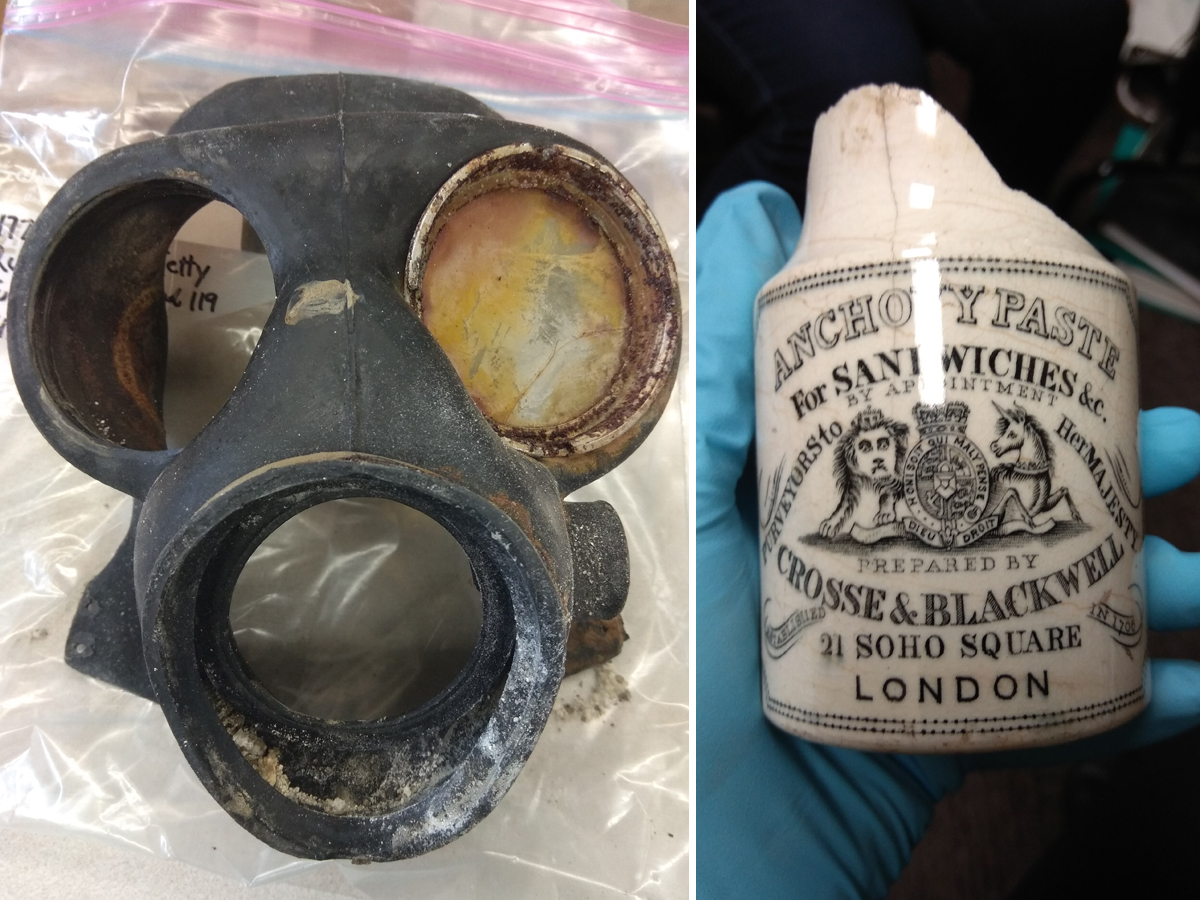Dredging up the past
By Lookout on Apr 12, 2019 with Comments 1

Left: A recovered Canadian issue Mark IV 1942 gas mask. Right: British ceramic anchovy paste jar dating to between 1830 and 1860, recovered near B Jetty.
Caitlin Craig, Formation Safety and Environment ~
Over the last four years the Esquimalt Harbour Remediation Project has recovered a treasure trove of artifacts, the oldest of which date back to the mid-1800s.
The aim of the project is to remove contaminated sediment surrounding A, B, and C jetties, as well as the ML Floats. This is performed by a large crane barge, which lifts the sediment onto a neighbouring processing barge. As the sediment is screened, archaeologists, working alongside contractors, recover artifacts as they appear.
With dredging finished at A and B Jetties, and scheduled to be finishing at C Jetty and the ML Floats in April, around 2,000 artifacts have been reclaimed from the sea floor.
The oldest artifacts tell a story of the Royal British Navy, before the Royal Canadian Navy was established in 1910. These include medicine bottles belonging to a ship’s physician, mess plates, and buttons from various departments ranging from the Royal Marines Light Infantry to the Royal Marine Artillery.
Many more artifacts provide a glimpse into the life of a sailor in the early 1900s: numerous clay pipes show affiliations, such as with the Royal Antediluvian Order of the Buffalos, familial ties, such as the Isle of Man, and activities like soccer. Toiletry and hygiene bottles such as hair tonic and cologne were found in abundance.
Other items remind us of more recent times, like the Second World War-era communications headset, six gas masks, and microfiche pages from 1975.
Being buried in sediment, as well as surrounded by cold water, has helped preserve the artifacts – the bacteria that would normally break these materials down can’t thrive in these conditions.
Additional dredging at Y Jetty continues to bring up archaeological materials, and even more will be found when scheduled remediation work begins in Lang Cove later this year.
After being cleaned, photographed, and catalogued, the artifacts will be held at the Royal BC Museum. Five display cases, which will be installed on the side of the new B Jetty building when it’s completed this summer, will contain rotating archaeological displays showcasing the history of Esquimalt Harbour.
Filed Under: Top Stories
About the Author:






What a treasure trove of artifacts.